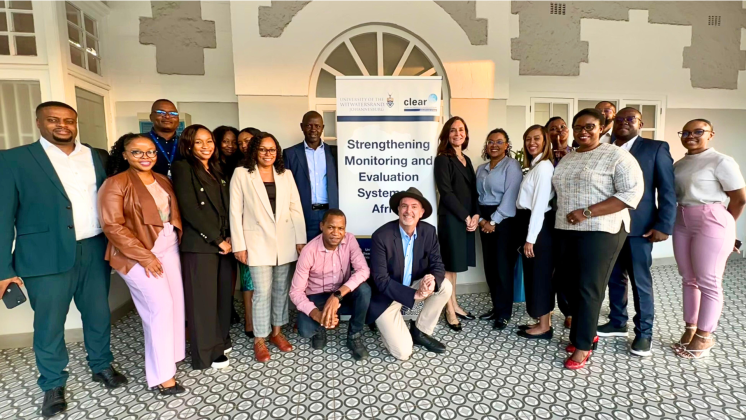Building Early Wins into Evaluation Systems

Dugan Fraser is the program manager of the Global Evaluation Initiative (GEI).
I was talking with Timothy Lubanga, Commissioner for Monitoring and Evaluation (M&E) at the Office of the Prime Minister in Uganda, at the Centre for Learning on Evaluation and Results for Anglophone Africa (CLEAR-AA) in South Africa in early May, when I experienced a lightbulb moment.
We were in South Africa with Sabine Bernabe, IEG’s Director General, to observe CLEAR-AA in action and meet the stakeholders they work with. Timothy, and Sakina Mwinyimkuu, Director of M&E Performance at the Prime Minister’s Office in Tanzania, accompanied us to hear how the national M&E system in South Africa functions and discuss how Uganda and Tanzania are strengthening their own.
As I listened, it struck me that when it comes to enabling M&E systems change, we don’t just need to be in it for the long haul, we need to be in it for the really long haul.
Timothy and Sakina benefited enormously from seeing firsthand how a mature M&E system functions in the region, but the reality is that building and improving M&E capacity takes time - there are no quick fixes. We are talking about a need for 20 years or more of consistent engagement with the promise of small but meaningful rewards on the way.
As I listened to Timothy, I remembered a discussion I had with Patricia Rogers, Independent Consultant and Founder/Former CEO of BetterEvaluation, for GEI’s Powered by Evidence podcast, “I think this notion that we'll sit in a corner for a year and build the perfect M&E system and then we'll roll it out is just not the way to do it," said Patricia. "I think we have to build in some early wins, and that will do a number of things. It helps people see that there's some value in it after all. It helps them sometimes realize how much work is involved in getting data and how much work needs to be put into making sense of the data.”
But what are these early wins? What can we focus on as we journey onward, impatiently asking, as I did in a 2021 blog post, “Are we nearly there yet?”
In our recent webinar, Making national M&E systems resilient amid political and administrative instability, Amna Aaqil, Director of the Center for Learning on Evaluation and Results for Pakistan and Central Asia (CLEAR-PCA), described some of the early wins her team had discovered as they worked to strengthen M&E systems in Pakistan. They found that:
- adopting cost-effective methodologies demonstrated quick, encouraging results that created a demand for further M&E
- by taking a phased approach, they could incorporate smaller initiatives that helped build momentum, disassociate negativity from evaluation processes, and create demand for M&E among decision-makers
- there is a need to depict evaluation as a means for learning, improvement, and data-driven decision-making, aligning incentives with stakeholder priorities
- adopting a top-down/bottom-up approach earned early wins: while building national systems, you can simultaneously strengthen sectoral or institutional systems by building capacity at different levels.
I would add a few more quick wins to Amna’s list:
- creating opportunities for deliberation and making time to build a consensus that considers a wide range of voices
- collecting good data, making it available, and avoiding collecting unnecessary data
- improving accountability by making sure people are held responsible for their performance
- encouraging a culture of curiosity and evaluative enquiry.
This first point is vital for evaluations to succeed, as Claudia Olavarría so eloquently put it in her blog post in March, “The meaningful inclusion of diverse voices in evaluation processes is imperative to provide evidence that supports the improvement of all lives, without exception.”
This is why, in 2023, the Global Evaluation Initiative (GEI), with support from Global Affairs Canada, launched the Feminist Innovations in Monitoring and Evaluation (FIME) project, to promote and facilitate the use of gender-transformative practices in the global M&E community.
Of course, we must all keep our eyes on those long-term goals we want to reach in 20 years, but in a world where systems are slow to change and long-term goals are not yet visible above the horizon, we must recognize and celebrate the quick wins we can all earn on the way.